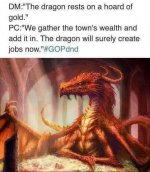- Joined
- Sep 24, 2011
- Messages
- 38,317
- Reaction score
- 44,345
- Location
- Atlanta
- Gender
- Male
- Political Leaning
- Independent
In the comments for some financial and political articles I have repeatedly heard the general idea that Republican presidents were supposedly responsible for the most recent recessions and that Democrat presidents have supposedly had to come in and clean up the mess and basically save the day.
Is there really anything to this? Can anyone here show a stronger connection than just the basic timing of events or clearly refute this claim once and for all? I wasn't an economics major and wasn't paying very close attention in detail to what was happening at the time and only vaguely remember the most recent recessions.
Of course there is more to the US economy than just the stock market. Right now I would be much more concerned about inflation and the relatively high number still unemployed than the stock prices for Amazon, Netflix, Facebook, etc.
The real myth is that any one President on their own has control over the economy, the stock market, interest rates, or really anything else along those lines. As influencers to the economy, fiscal matters is under a different branch and monetary matters is handled by the Fed (at the risk of oversimplification.)
One could argue that a President's intentions and rhetoric could be mild influencers on many things but ultimately our bubble and pop economic model is based on several underlying faults that no single President can do much about.
In a natural economy based on mixed model principles there will always be the same cycle of expansion to a peak, the recession to a trough, then repeat. The distance between those points on a timeline results in trend growth line.
The rub comes into the mix when fiscal policy is out of alignment with monetary policy in terms of what the economy needs at a given time. Add in trade policy faults and you get larger amplification of the economic cycle, or bubble and pop economics where the peak is a bubble waiting to pop and the collapse is short term and extremely painful for usually the lower income quintiles.
No Congress can magically fix all of that in a single "recovery act," but it is still an influence when changing taxation and spending to prop up aggregate demand. There is no real "saving the day" here so much as really saving additional pain from the complication of vulture economics.
The easiest way to explain why more recent recessions are more painful and recovery takes longer is one of our underlying economic faults is the wealth gap, another is concentration of larger businesses controlling more of a given market, with a close 3rd being we are largely a services oriented economic model damn near reliant on foreign trade to actually make products for our economy. A 4th is a toss up between political climate and the balance of regulation to business operations.
Any one of those things (or others) show fault and it is very difficult for Congress to address things with taxes and spending fast enough, very difficult for the Fed to deal with interest rates and toxic asset removals, and often those two are entirely out of sync anyway. Politics drives Congress, monetary and asset valuation in terms of economic expansion drives the Fed, and you get those two in the room and it is your basic shit show.
The result is Congress running deficits no matter the condition of the economy and the Fed propping up whatever economic path we are on ignoring the bubble forming.
The President in that equation... well... he can give a speech, complain to Congress, complain to the Fed, start a useless trade ware, and that is about it.

